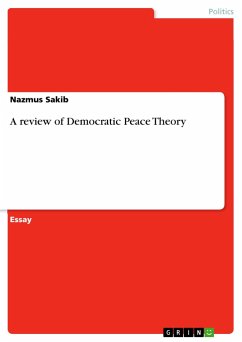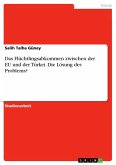Essay from the year 2017 in the subject Politics - Region: Near East, Near Orient, grade: 4.0, , language: English, abstract: Time series data shows that democracies rarely engage in wide scale conflict with each other. It is not that the elements that instigate war were not present in democracies in the time when the data was collected, but, according to researches, there are very few cases in last two hundred years of history where two democracies are seen to be involved in a fully fledged violent clash. This pattern puzzled researchers and thus the Democratic Peace Theory came into existence. If we step back for a little while, academic literature has reasonably argued and established that domestic politics has an instrumental ratification role to play behind every major action by states in the realm of international political economy and diplomacy. So, at domestic level internal groups pursue their interest by lobbying the government. The government makes coalition among these groups to make its position firm. At international level government tries to maximize their interests that stems from these groups while minimizing the unpleasant consequences of foreign influences. There is a very convincing literature about synergistic issue linkages and strategic use of side payments and kinky win sets that influence issues across the board. At the same time states decision to move forward or back down is heavily dependent on audience cost. The higher the audience costs, the less likely a leader is to initiate an international crisis and the less likely a state is to back down.








